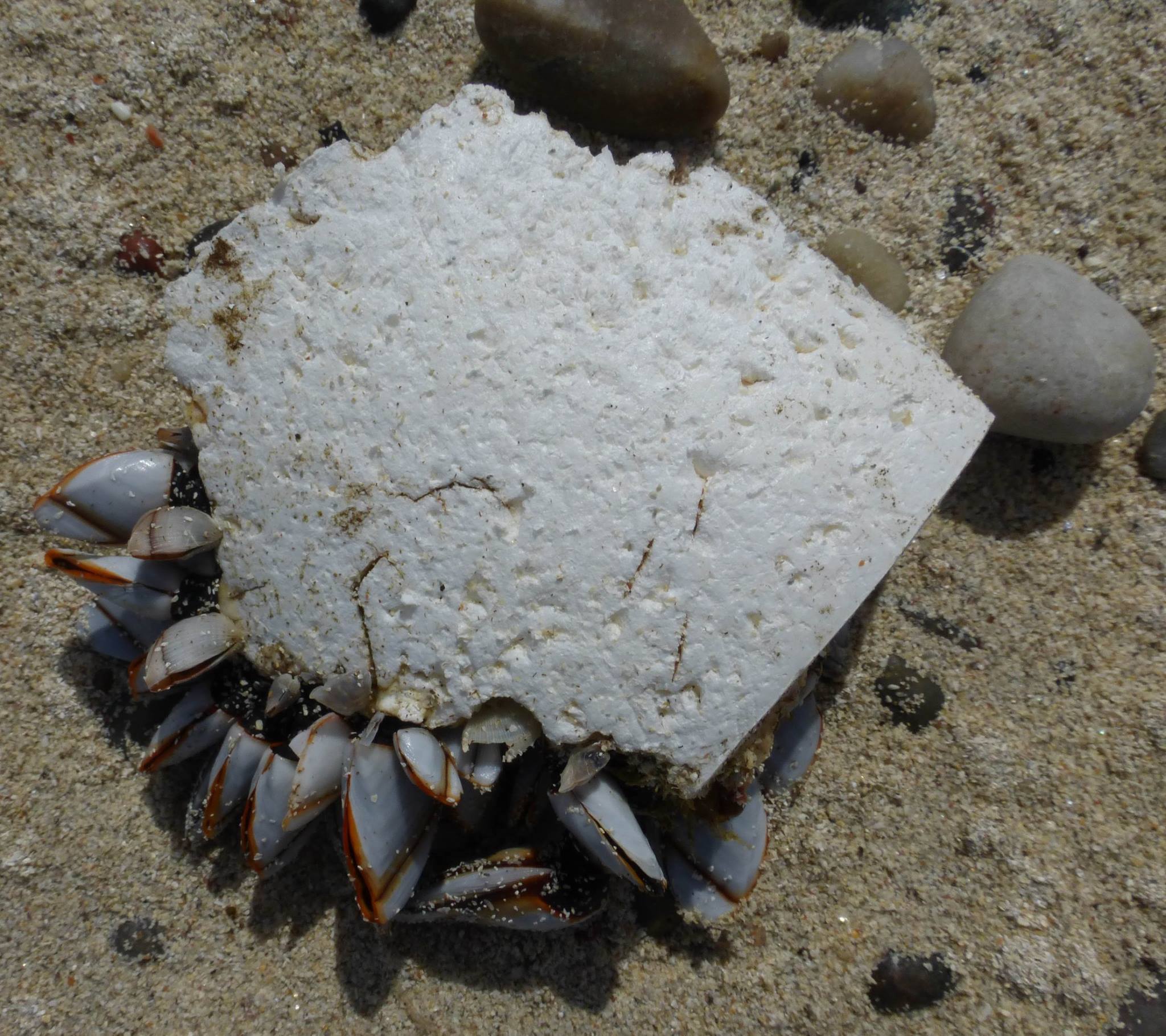A HOLIDAYMAKER on one of Scotland’s most unspoiled and beautiful islands snapped a shocking picture of barnacles clinging to a chunk of polystyrene.
The depressing image from Iona shows about 20 grey and orange Goose Barnacles growing off the edges of the discarded foam packaging.
Jim McRae, from Stovehaven, Aberdeenshire, was camping on the nearby Isle of Mull when he went across to Iona for a visit.
The 61-year retired Forrestry worker, was walking on one of the island’s stunning and almost deserted beaches.

Mr McRae said: “I was looking for cowrie shells when I saw the goose barnacles. They were at the far end of the beach.
“It was a small piece I would say about six inches by seven inches. The barnacles were small, about 1.5 inches long and there was about 20 of them.
“I’d never seen that before.”
The tiny isle of Iona, near the southwest coast of Mull is only 1.5 miles wide by 3 miles long, with a population of around 120 permanent residents.
It is well-known for its beautiful and clean beaches and attracts more than 130,000 visitors every year.
Mr McRae continued: “The beaches there are very clean and free of plastic rubbish so I was saddened to see this.
“The beaches on the east coast where I live have all kinds of plastic waste on them.
“Time we stopped using our seas as a dumping ground.”
Goose barnacles are found in oceans around the world, except in Arctic regions, and regarded as a delicacy in Spain and Portugal.
Earlier this week a shocking photo emerged showing a salmon which had been partially decapitated after discarded plastic tag cut into its flesh as the fish grew in size.
The gruesome images of the fish, caught on the Inverpolly Estate in Achiltibuie, come as pressure grows from environmental groups for a crackdown on plastic waste
Today the Scottish Government announced a commissioned detailed work on how a potential bottle ‘deposit return scheme’ might operate in Scotland.
In response to the news, Calum Duncan, Head of Conservation Scotland for the Marine Conservation Society, said: “The Marine Conservation Society has long argued for a system of this sort, based on the evidence our dedicated volunteers collect every year of increasing plastic pollution on our beaches and in our seas.
“If a final decision is taken to adopt this approach in Scotland, we are confident that other parts of the UK will follow where Scotland leads.
“Deposits for drinks containers won’t solve all our litter problems, of course, but there is no more obvious next step to take if we want to reduce the problem of plastics in our oceans.”

